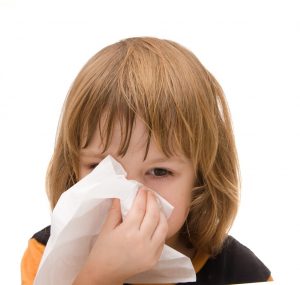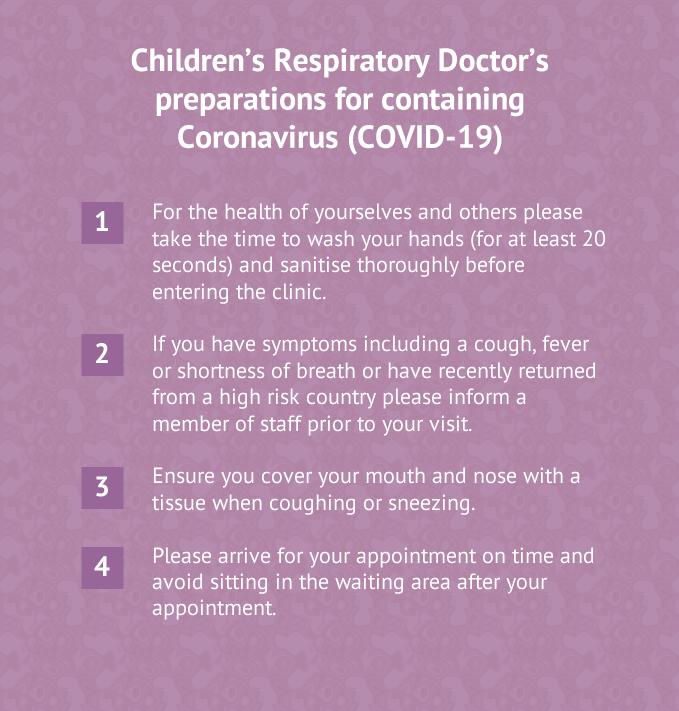Coughs are very common at this time of year. If you are concerned about severe symptoms or a cough that won’t go away, you should ask your family doctor or a respiratory paediatrician for advice. However, you will usually be able to manage the symptoms at home.

Treating a Cough
The best way to treat a cough is to let your child rest and ensure that they are getting plenty of fluids. If your child has a blocked nose, you might want to try saline drops to help loosen it. You shouldn’t give over the counter cough medicines or decongestants to children, unless your doctor has advised otherwise. However, you can give children’s paracetamol or ibuprofen to relieve pain and fever. Make sure that you read the packet to get the right dosage and check with your doctor first if your child is taking any other medication. Some children who have asthma won’t be able to take ibuprofen. The symptoms should usually improve within about a week. If they don’t, then you should consult your respiratory paediatrician.
Stopping the Spread
As well as treating your child’s symptoms, it is also important to take steps to reduce the chances that the cold will spread to other people. The best way to do this is to ensure that everyone in the family is washing their hands regularly, especially before handling food or eating. Covering the mouth or using tissues to catch coughs and sneezes can also help to stop germs from spreading.
You should also consider keeping your child away from nursery or school if their symptoms are very bad, as it can prevent flu from spreading to the other children. You should also see your GP or respiratory paediatrician if the symptoms are severe. However, most children will have eight or more colds every year and the symptoms are usually mild enough that they can still attend classes.



